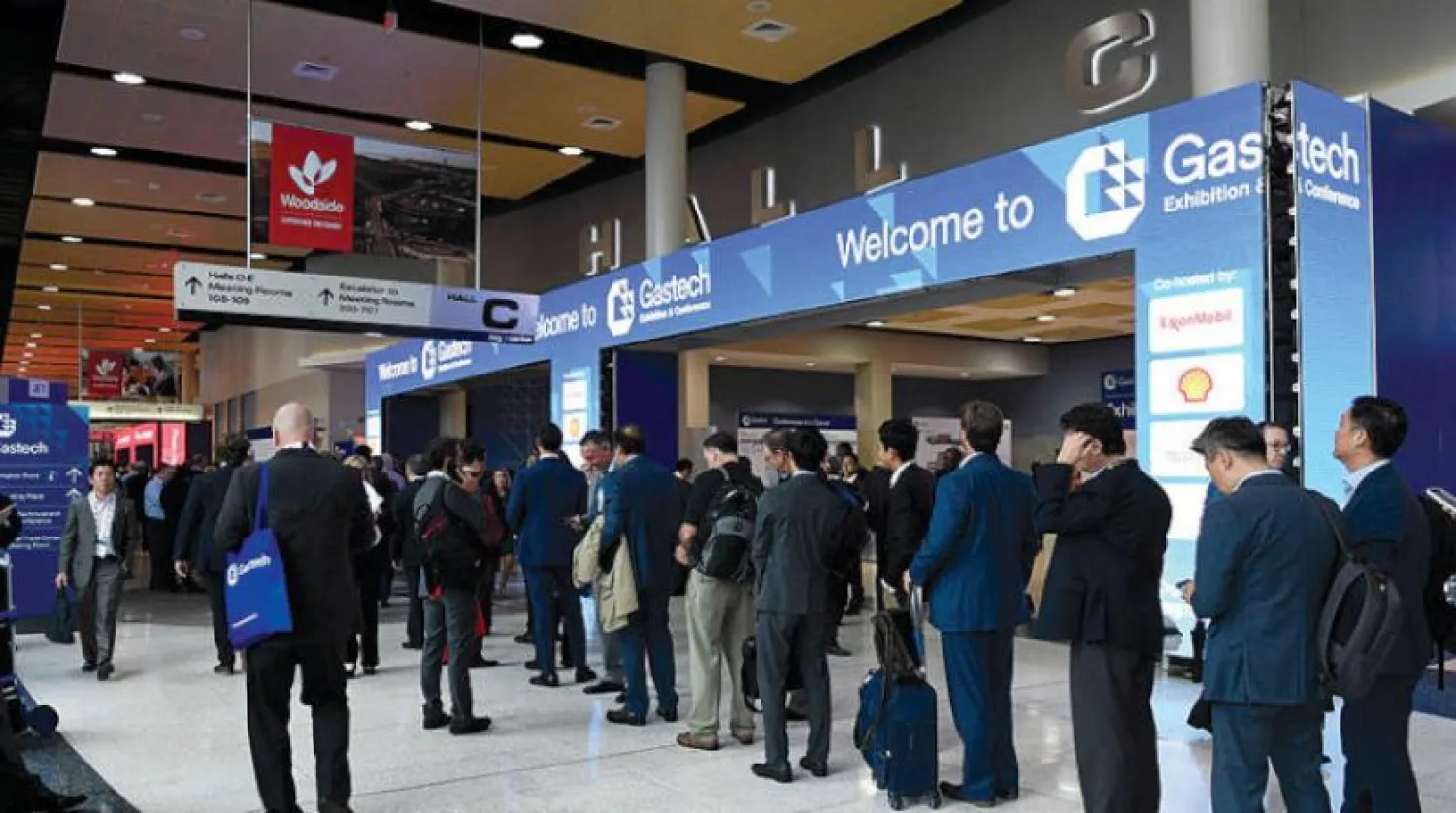Gastech, the world’s foremost exhibition and conference supporting the gas, Liquefied natural gas (LNG), hydrogen and energy industry, kicked off in Dubai on September 21, bringing together 15,000 global industry professionals.
The three-day event is scheduled to address the challenges facing the industry.
It will feature an influential strategic conference and technical sessions and an industry leading exhibition, enabling the gas, LNG, hydrogen, and energy industry to engage face-to-face with the challenges of environmental agendas, leveraging technology and new means of working to match changing market requirements.
Dr. Sultan Ahmed al-Jaber, UAE Minister of Industry and Advanced Technology and Managing Director and Chief Executive Officer of the Abu Dhabi National Oil Company, will deliver the official ministerial welcome address.
As part of Gastech 2021’s opening ceremony, a ministerial panel will share insights into the role of natural gas in the energy transition, the hydrogen economy and what actions are needed to meet the growing demand for energy and cleaner fuels.
Among the participants are Suhail Mohamed al-Mazrouei, UAE Minister of Energy and Infrastructure, Eng. Saad Sherida al-Kaabi, Qatar’s Minister of State for Energy Affairs and President and Chief Executive Officer of Qatar Petroleum, Dr. Alparslan Bayraktar, Turkey’s Deputy Minister of Energy and Natural Resources, Arifin Tasrif, Indonesia’s Minister of Energy and Mineral Resources, and Mohammad Barkindo Sanusi, Secretary-General of OPEC.
“Gastech 2021’s Strategic Conference will address the hard facts about the transition to net-zero carbon emissions,” Christopher Hudson, President of DMG events, organizers of Gastech, explained.
It will also tackle the “enormous challenge the industry, regulators and end users will have to embrace to meet the commitments of the Paris Accord on climate change mitigation and support the industry leadership in drawing up the road map to a carbon neutral and sustainable future,” he added.
Gastech’s exhibition will also showcase the latest digital technology and solutions that will positively impact gas, LNG, hydrogen, and energy industry operations for years to come, Hudson stated.
Key topics to be discussed include decarbonization and emissions management, financing and project investment, adapting business models in a post-COVID world.
Participants will also discuss the integrated energy suppliers, gas and LNG supply and demand dynamics, the potential for hydrogen to play a key role during the energy transition, diversification of the future workforce, trading, contracting and pricing, as well as EPC and project progress/updates and climate policies and the role for gas.
Taking place simultaneously, the Gastech Technical Conference features five learning streams – Hydrogen, Marine, EPC and Project, Processing and AI and Technology.









